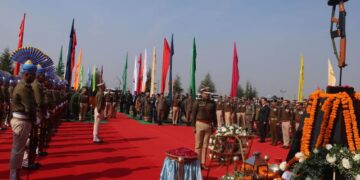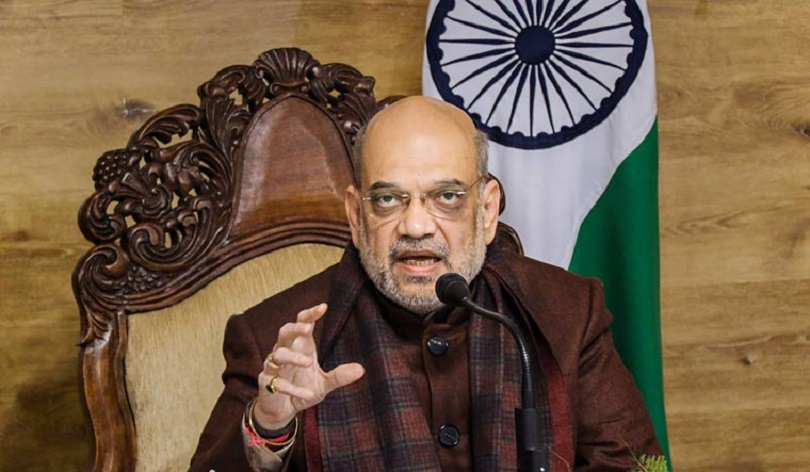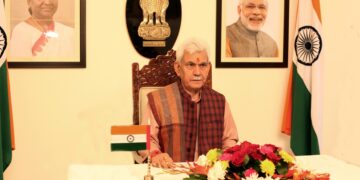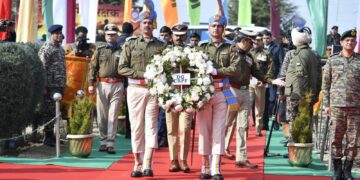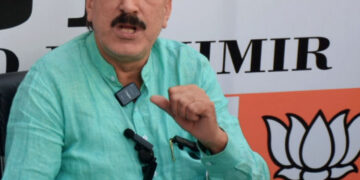Srinagar: The High Court of J&K and Ladakh on Wednesday while adopting guidelines for standard operating procedure (SOP) with regard to personal appearance of government servants in court proceedings, has directed the judges to exercise caution when initiating contempt proceedings against them.
In an order by the Registrar Judicial on the directions of the Supreme Court of India, the SOP said the courts should exercise caution and restraint when initiating contempt proceedings against government servants so as to “ensure a judicious and fair process”.
The order stated that in a proceeding instituted for contempt by willful disobedience of its order, a court should ordinarily issue a notice to the alleged official contemnors, seeking an explanation for their actions, instead of immediately directing personal presence.
It continued that following the issuance of the notice, the court should carefully consider the response from such alleged contemnor. “Based on their response or absence thereof, it should decide on the appropriate course of action. Depending on the severity of the allegation, the court may direct the personal presence of the contemnor,” read the order.
In cases requiring physical presence of a government official, SOP called for providing advance notice for an in-person appearance, allowing ample time for preparation. However, the court should allow the officer, as a first option, to appear before it through video conferencing, it added.
It said the courts should evaluate instances of noncompliance, taking into account procedural delays or technical reasons. If the original order lacks a specified compliance timeframe, it should consider granting an appropriate extension to facilitate compliance.
The Registrar Judicial notified that when an order specifies a compliance deadline and difficulties arise, the court should permit the contemnor to submit an application for an extension or stay before the issuing court or relevant appellate/higher court.
The notified SOP shall be applicable to all court proceedings involving the government in cases before this High Court and all other courts acting under their respective appellate, original jurisdiction or proceedings related to contempt of court.
In the proceedings involving evidence such as documents or oral statements, the government officials will be required to be physically present for testimony or to present relevant documents.
According to the SOP, while hearing non-adversarial proceedings, the courts may require the presence of government officials to understand a complex policy or technical matter that the law officers of the government may not be able to address.
It read that the presence of government officials may be directed, inter alia, in cases where the court is prima facie satisfied that specific information is not being provided or is intentionally withheld, or if the correct position is being suppressed or misrepresented.
The court, it said, should not direct the presence of an official solely because the official’s stance in the affidavit differs from the court’s view. In such cases, if the matter can be resolved based on existing records, it should be decided on merits accordingly.
In exceptional cases wherein the in-person appearance of government officials is called for by the court, the court should allow as a first option the officer to appear before it through video conferencing.
The SOP stipulates that when the personal presence of an official is directed, reasons should be recorded as to why such presence is required. Due notice for in-person appearance, giving sufficient time for such appearance, must be served in advance to the official. This according to the order would enable the official to come prepared and render due assistance to the court for proper adjudication of the matter for which they have been summoned.
In instances where the court directs the personal presence of an official or a party, the procedures recommend that the court should, to the extent possible, designate a specific time slot for addressing matters where the personal presence of an official or a party is mandated.
The SOP says the government officials participating in the proceedings need not stand throughout the hearing and standing should be required only when the official is responding to or making statements in court. Oral remarks with the potential to humiliate the official have been directed to be avoided.
It further lays down that the courts must refrain from making comments on the physical appearances, educational background, or social standing of the official appearing before it.


